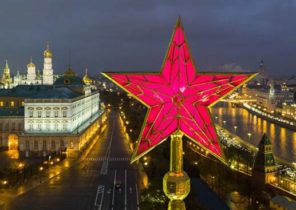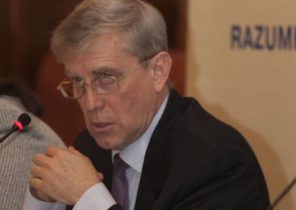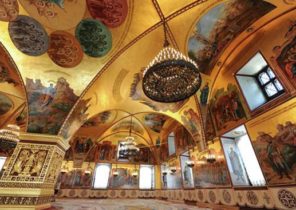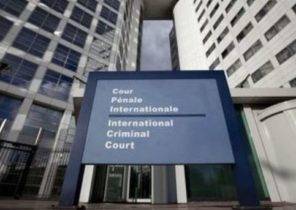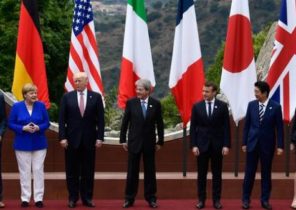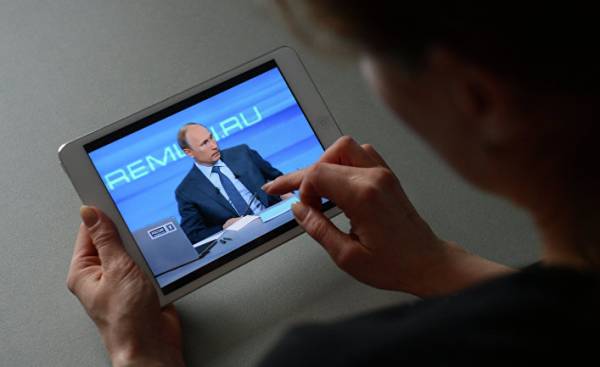
Vladimir Putin still has not announced whether he will run in the presidential elections in March 2018 to extend its mandate for a further six years. However, Kremlin spin doctors have chosen a topic and are developing programs for leader. In the elections of next year will participate boys and girls born in a time when Putin was Prime Minister (August 1999-may 2000) and was going to replace Boris Yeltsin. Now Putin himself became a grandfather, what he said us filmmaker Oliver stone (Oliver Stone). After 18 years in power for Putin, it is important that these young people did not perceive it as perceived by elderly Communist party leaders, while in power in 1985 came Mikhail Gorbachev, who was then 54 years old, that is, 11 years less than Putin in March 2018.
The creators of the campaign plans for the current President is afraid of youth most of all due to the fact that in March a huge number of teenagers took part in demonstrations against corruption in cities across Russia, responding to the call politician Alexei Navalny. The Kremlin is trying to develop ways to attract those who are actively opposed to the official rate, as well as those who ignores it, refusing television and seeking refuge in social networks.
The task of strategists is to identify Putin with Russia’s future, not just to create an image of the leader, reviving the Empire, by the annexation of Crimea, he successfully obtained. But this is not enough to garner votes of the youth.
Program grandfather Putin should be associated with a qualitatively new leadership and, judging by all indications, will rely at least on two pillars: the transfer economy in digital format and more General strategy, which would consist of several development plans, developed on behalf of the Kremlin, including former Finance Minister Alexei Kudrin and authorized under the Russian President for human entrepreneurs Boris Titov.
In early June, the international economic forum in St. Petersburg has become a laboratory of electoral topics. During the forum, Putin met with the 23-year-old programmer Vitalik Butterini, whose family emigrated to Canada. Buterin is the Creator of the digital platform Ethereum, which is a common decentralized global computer based on blockchain technology. Technology works as a database backup. According to the Kremlin sources, Putin Buterin informed about the possibilities of using Ethereum in Russia, which supported the idea to establish contacts with potential Russian partners.
As stated by Vice-Premier Igor Shuvalov, Putin literally “sick” of the digital economy and new technologies. He said that the President assembled a small team of officials from the administration and the government to discuss these topics, and let them go only after midnight.
In St. Petersburg, Putin spoke about the main directions of the program of the digital economy, which the government developed on its behalf. The program includes “universal digital literacy” training for people of all ages and the “new regulatory framework for the rapid introduction of digital technologies in all the fields” subject “information security of the state, business and citizens”. Putin announced measures “to increase our intellectual, technological and human excellence in the field of digital technology.”
In his opinion, “a great school of mathematics and theoretical physics” allow Russia “to achieve leadership in the field in different directions the so-called new economy, mainly digital.” The digital economy is not a new industry, and “basis, allowing you to create a qualitatively new model of business, trade, logistics, production. It changes the format of the education, health, government, communication between people and, as a consequence, creates a new paradigm of development of the state, economy and society”, — said Putin.
The digital economy Putin evokes modernization, announced by the current Prime Minister Dmitry Medvedev when he was President from 2008 to 2012. Medvedev visited Steve jobs (Steve Jobs) in California, is actively using the iPad and Twitter. He opened the centres of excellence SKOLKOVO near Moscow and Innopolis near Kazan with the aim of attracting experts in new technologies. For experienced people the magic words blockchain means “to surpass” the West, not ahead of it. Vladislav Martynov, CEO of Yota, said that Russia can become the main hub of the blockchain in the world. Three experimental areas of the digital economy in Russia, mentioned by Shuvalov, personal identification, tracking transport of cargo and registration of property rights. Russia is studying the experience of Georgia using the platform the blockchain for the registration of property rights.
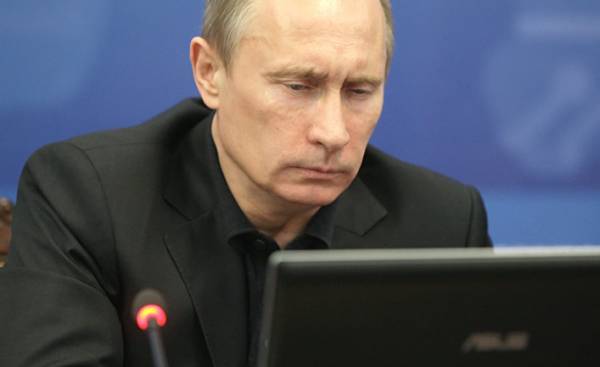 © RIA Novosti, Alexei Druzhinin | go to fotobanka trip of Vladimir Putin in the Central Federal district of the Russian Federation
© RIA Novosti, Alexei Druzhinin | go to fotobanka trip of Vladimir Putin in the Central Federal district of the Russian Federation
As acknowledged by Shuvalov, Russian officials do not know how to listen to talented people. The Vice-Premier said that he met with young people who had previously worked in SKOLKOVO, which tried unsuccessfully to offer their services to the Central Bank and the Ministry of Finance. Then they paid no attention, with the result that they went to Singapore, and “now one of their main clients are the governments of India and Sweden”.
The future will show whether it will be possible to link the economy on the digital format with the desire to control the political life in Russia. This has already led to more severe restrictions when using the Internet. Put forward new legislative initiatives to ban applications that allows to access banned in Russia sites and not revealing the identity of the owner. Also discussed mandatory registration in the messengers.
Reform plans in Russia are carried out in an environment which is determined by the untouchable power of the system, which is what the security agencies with their own perception of the state, its corporate interests and privileges. They make changes in the rules of the game on your own. In St. Petersburg, Putin compared the hackers and free and Patriotic artists. “No Patriotic hackers,” said ICANN Vice President for relations with Russia and CIS countries and Eastern Europe Mikhail Yakushev. “We should not forget that in 2011 Russia proposed a UN international code of conduct in the field of information security, under which countries had to commit themselves not to use information and communication technologies to conduct hostile activities and join together in the fight against criminal and terrorist activities, which are used network with the aim of undermining political and economic stability of foreign States”.
